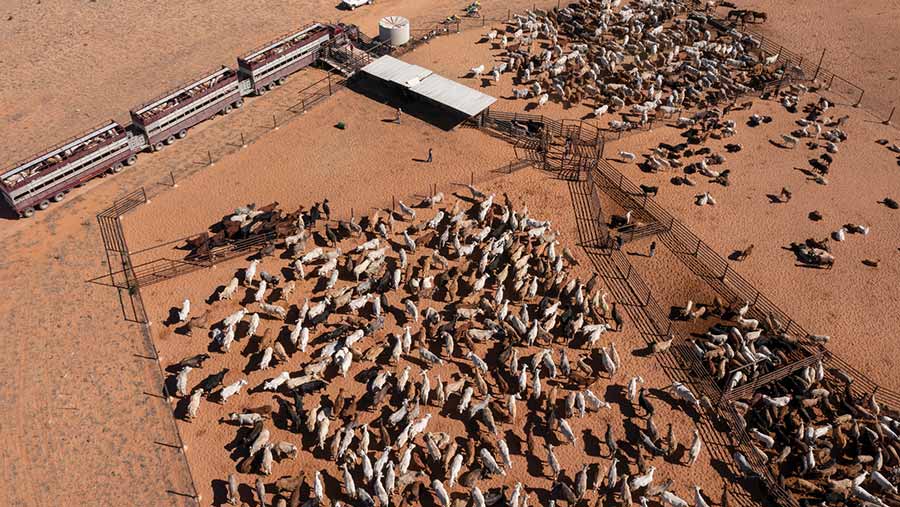Global beef prices likely to remain elevated for 2024
 © iStockphoto/John Carnemolla
© iStockphoto/John Carnemolla Higher global beef prices have been supporting the domestic market in recent months and have helped to push GB deadweight cattle up to near £5/kg.
Looking forward, global production is likely to remain fairly steady, with lower numbers in Europe and the US being offset by increased production in Australia and Brazil, according to global co-operative bank Rabobank.
Angus Gidley-Baird, senior analyst at Rabobank, said: “Questions about economic performance, income levels, costs and the direction of monetary policy remain unanswered, but we expect overall beef demand to hold in 2024 and, therefore, consumption levels to remain steady.”
See also: Irish grass-fed beef granted all-island PGI status
US beef imports
Rabobank forecasts that China could have a lower import requirement during the first half of the year, which could divert some trade to the US market, where supplies are likely to be tighter.
Mr Gidley-Baird added: “Brazil’s exports to the US in January 2024 were ahead of 2023, and Australian volumes were up 127% year on year. If China’s recovery is better than expected, global beef markets could become quite tight, fuelling price rises.”
There are historically tight supplies of cattle in the US, according to the US Department of Agriculture, and it has projected record-high beef imports as a result of this.
Cliff Shelton, economist at agricultural lender AgAmerica, told Farmers Weekly slaughter rates are expected to be lower in the first half of 2024 as feedlots place cattle on feed to be marketed and slaughtered in the second half of 2024.
He said: “This raises demand for beef imports to the US, which can be satisfied by large beef supplies internationally.
“Tighter supply for marketed cattle, coupled with demand pressures domestically and abroad, are expected to continue the upward trends in beef prices, keeping them propped up through 2024 and into 2025.”
UK prices near £5/kg
GB steers averaged 497.9p/kg deadweight for the week ending 2 March, while heifers averaged 496.1p/kg.
Production in both Britain and Ireland is likely to remain fairly tight, which should help to support domestic markets in the short term.
Fewer youngstock coming through together with higher beef consumption estimates should also help to support prices in the longer term.
However, there is potential for increased import volumes from Australia through the free-trade agreement, which could soften the market slightly.
